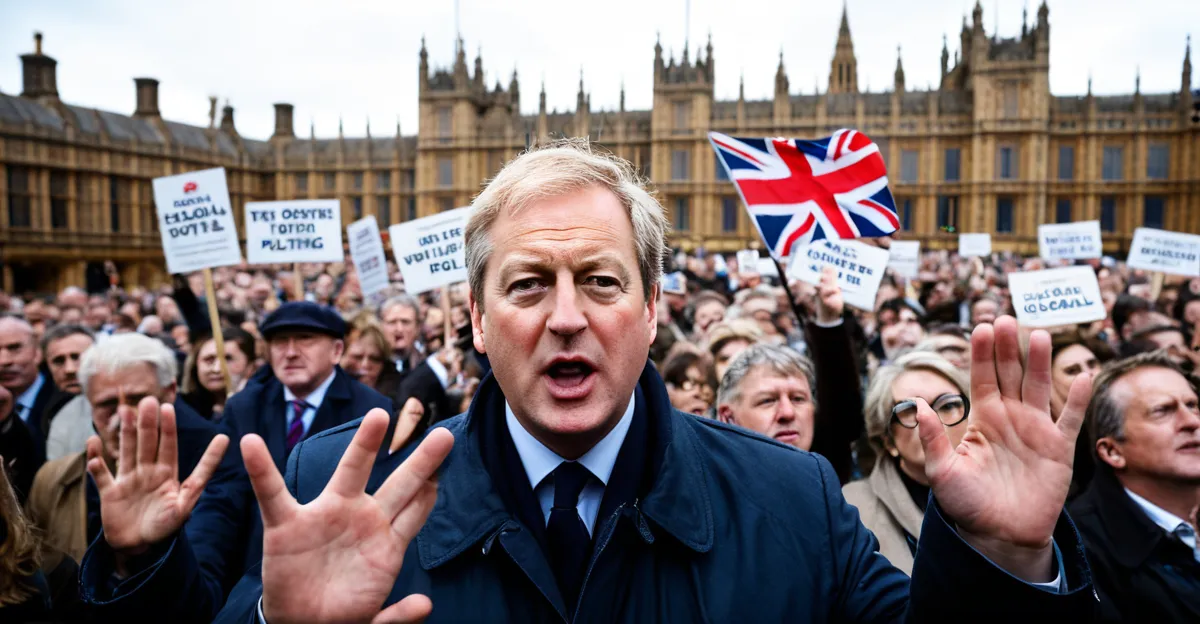The UK’s Historical Foundations of Global Influence
Understanding the UK’s historical foundations is essential to grasping its contemporary global role. The roots of British global influence lie in the expansive British Empire, a dominant force from the 16th century through the early 20th century. This colonial legacy has left a lasting imprint, shaping international relations and the geopolitical landscape in multiple regions around the world.
The Empire’s reach extended across continents, establishing political institutions, legal frameworks, and educational systems that continue to influence former colonies today. This historical influence transitioned into a more subtle and enduring form of soft power after decolonisation. The evolution from empire to the modern Commonwealth has maintained unity based on shared values, cultural heritage, and mutual cooperation among member states.
Have you seen this : What are the UK’s efforts in combating climate change?
A key instrument of British soft power derives from the global prominence of the English language, which facilitates diplomatic communication, international business, and cultural exchange. Alongside language, British education systems and legal principles have been widely adopted and adapted, reinforcing the UK’s global standing. These factors together ensure that the UK’s colonial legacy is not solely a relic of the past but an active foundation for its continuing influence in global politics and international relations.
Economic Power and Global Financial Centers
London stands as a critical pillar in the UK economy and a leading global financial center. It ranks among the most prominent hubs for banking, insurance, and investment services worldwide. This status is supported by London’s sophisticated infrastructure, robust legal framework, and highly skilled workforce. The city attracts capital and financial talent from across the globe, reinforcing the UK’s position in global finance.
Also read : Brexit’s impact on UK’s small businesses?
The UK’s economic influence is further strengthened by its pivotal role in international trade and investment. It serves as a gateway between European, American, and Commonwealth markets. The country’s extensive trade relationships enable it to maintain significant economic ties beyond the EU, particularly with the US and Commonwealth nations. These partnerships foster a diverse and resilient economy capable of adapting to global shifts.
What makes London a standing global financial center? London benefits from a combination of historical precedence, regulatory stability, and time-zone advantages that allow continuous trading with both Asian and American markets. Additionally, the UK government supports innovation in fintech and sustainable finance, promoting long-term growth in the financial sector.
In summary, the synergy between London’s financial dominance and the UK’s active participation in international trade sustains the country’s economic influence on the world stage. This economic strength is fundamental to the UK’s ability to project power and shape outcomes in international trade and financial diplomacy.
Political and Diplomatic Relationships
The UK diplomacy framework plays a crucial role in shaping international relations and demonstrating its enduring global diplomacy influence. A defining feature of this influence is the UK’s permanent seat on the UN Security Council, which grants it significant authority in international security decisions and peacekeeping operations. Through active participation in the United Nations, the UK exerts considerable sway in global policymaking and conflict resolution.
In addition to its UN role, the UK maintains strong diplomatic ties with key partners such as the US and NATO member states. These alliances bolster its position in security and defense diplomacy, enabling coordinated responses to emerging global threats. The UK’s leadership within NATO exemplifies its commitment to collective defense, further extending its influence on international security policy.
The Commonwealth remains a vital platform for the UK’s diplomatic engagement, fostering cooperation among member states through shared history and values. This network enhances the UK’s capacity to influence developmental and political agendas worldwide. Moreover, the UK frequently engages in high-level diplomatic negotiations, shaping global policy across areas like climate change, trade, and security.
In essence, the UK’s blend of permanent institutional roles, strong alliances, and strategic diplomacy forms the backbone of its continued prominence in global diplomacy and international relations.
Military Capabilities and Strategic Global Presence
The UK military power is a cornerstone of its enduring role in global security. Historically, the British armed forces have demonstrated resilience and adaptability, evolving from the Empire’s naval dominance to today’s technologically advanced defense systems. This legacy underpins the UK’s capability to project force and maintain influence far beyond its borders.
The armed forces consist of the Royal Navy, British Army, and Royal Air Force, each equipped to respond rapidly to global crises. The UK’s global deployment capabilities are supported by a network of overseas bases, such as in the Caribbean, the Middle East, and the South Atlantic, which ensure strategic reach and logistical support. These bases allow the UK to act quickly during emergencies and contribute effectively to international peacekeeping.
Key roles within defense alliances such as NATO highlight the UK’s commitment to collective security. The UK regularly participates in joint exercises and operations, reinforcing partnerships essential for deterring threats. Its leadership in NATO operations provides not only military strength but also political influence within international security frameworks.
In summary, the UK’s combination of historic military strength, modern capabilities, and strategic global presence solidifies its position as a pivotal player in international defense and peacekeeping efforts.
Cultural Influence and Soft Power Assets
The UK’s cultural influence forms a critical pillar of its global soft power. A prime example is the widespread use of the English language, which functions as a lingua franca for diplomacy, business, and international communication. English’s status stems directly from the UK’s colonial legacy, enabling it to maintain influence through shared language even after formal political ties diminished.
British media also plays a pivotal role in projecting cultural influence worldwide. Institutions like the BBC have set standards for quality journalism and entertainment, shaping global perceptions of British news and culture. Additionally, British literature and performing arts continue to captivate international audiences, reinforcing the UK’s cultural prestige. Sports such as football and rugby, with their roots in the UK, offer another avenue for cultural diplomacy by fostering global engagement based on shared interests and values.
Education is another cornerstone of British soft power. The UK hosts some of the world’s most prestigious universities, attracting students globally and creating lasting connections. The global adoption of British education standards and curricula contributes to the UK’s influence by nurturing leaders and professionals familiar with British norms. Alongside education, the UK’s legal systems and governance models serve as templates in many countries, extending its impact on global politics and societal institutions.
Together, these cultural assets enhance the UK’s ability to influence international affairs through non-coercive means. They enable the UK to sustain a respected presence in global politics, complementing its diplomatic and economic power. The fusion of language, media, education, and cultural heritage secures the UK’s position as a soft power leader on the world stage.
The UK’s Role in International Organisations
The UK holds a significant position within major international organizations, shaping decisions that impact global governance and policy. Its permanent membership on the United Nations Security Council underscores its authority in international peace and security matters. This role enables the UK to partake directly in sanctioning measures, peacekeeping authorizations, and conflict resolution initiatives at the highest level of global diplomacy.
Beyond the UN, the UK actively participates in the G7 and G20 forums, where it helps steer discussions on economic stability, climate action, and international development. The UK’s involvement in these groups reflects its commitment to coordinating responses to global challenges alongside other leading economies. Through these platforms, the UK influences international regulatory frameworks and promotes standards that align with its strategic interests.
The Commonwealth of Nations remains a unique and enduring institution reflecting the UK’s colonial legacy transformed into a modern multilateral partnership. The Commonwealth facilitates cooperation among countries that share historical ties and common values, reinforcing diplomatic, economic, and cultural bonds. The UK’s leadership within the Commonwealth promotes development goals, human rights, and international collaboration.
In addition, the UK is engaged in various international regulatory and standards bodies, which further extend its influence over global governance practices. These participations solidify the UK’s presence in setting norms around trade, finance, environmental policy, and technological innovation, demonstrating a strategic approach to maintaining relevance in global politics.
Together, the UK’s active roles in these global institutions ensure it remains a vital actor in shaping worldwide policy and reinforcing its historic status as a key player in international affairs.
Contemporary Examples and Evidence of UK Influence
Recent events highlight the UK’s continuing role in modern diplomacy and its adaptability within global affairs. One prominent example is the UK’s vocal leadership in addressing international crises, from conflict mediation to global health challenges. The UK leveraged its diplomatic weight to rally international coalitions, demonstrating effective coordination within forums such as the United Nations and NATO.
Regarding Brexit, the UK’s departure from the EU generated widespread diplomatic activities aimed at redefining its external relationships. The global diplomatic response involved complex negotiations to secure trade agreements while maintaining strategic alliances, showcasing the UK’s determination to sustain its global influence despite shifting political landscapes. This period saw assertive British diplomacy balancing sovereignty ambitions with engagement in multilateral institutions.
Case studies in international politics further underscore the UK’s role. For instance, the UK’s involvement in climate diplomacy exemplifies proactive leadership by advocating ambitious targets and fostering international cooperation. Similarly, the UK’s active participation in peacekeeping and conflict resolution—whether through direct intervention or diplomatic pressure—reflects a commitment to stabilizing regions vital to global security.
These contemporary examples attest to the UK’s resilience and strategic use of modern diplomacy, ensuring its continued relevance on the world stage despite evolving geopolitical challenges. Through coordinated efforts in crisis management, trade negotiations, and multilateral leadership, the UK sustains an influential presence in shaping 21st-century global politics.
Challenges and Future Trends for UK Influence
The future of the UK global role faces significant challenges amid evolving geopolitical trends. One pressing concern is the impact of Brexit on maintaining traditional alliances and trade partnerships. The departure from the European Union has introduced complexities in sustaining economic and diplomatic influence, necessitating strategic adaptation. The UK must carefully navigate these shifts to preserve its standing in global politics and reinforce ties with both European and non-European partners.
Internal debates regarding the UK’s direction—ranging from questions of national unity to policy priorities—also influence its capacity to project power internationally. Political cohesion is crucial for coherent foreign strategy and effective engagement in international institutions. Without internal consensus, the UK risks diminishing its ability to act decisively on the world stage.
Yet, alongside challenges, new opportunities emerge in areas such as technology innovation, climate change leadership, and forging new alliances beyond traditional frameworks. Advances in digital infrastructure and green energy position the UK to contribute significantly to global solutions. By investing in these sectors, the UK can enhance its soft power and open avenues for influence aligned with contemporary priorities.
Predictions for the UK’s evolving global role indicate a more multidimensional approach that balances traditional diplomacy with adaptive strategies suited to a multipolar world. The UK’s experience and historic foundations provide a base from which to engage dynamically with future global challenges, ensuring continued relevance in international affairs.








